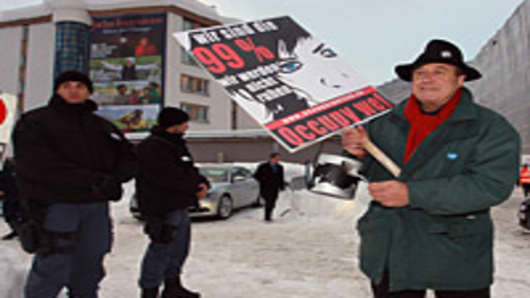"I believe while Soros was being hyperbolic in a sense, what he was trying to do was warn or wake up the World Economic forum to the very real threat the Occupy Movement poses to the world system—not just in violence but in an aroused public opinion,” says Ted Morgan, political science professor at Lehigh University in Bethlehem, Pa., and author of “What Really Happened to the 1960s” (University Press of Kansas, 2011).
“One of the key questions going forward is whether Occupy can find effective ways of getting its meanings through to the wider public, rather than being stigmatized by media images,” Morgan says.
One Occupy supporter, in fact, sees recent developments, particularly President Obama’s State of the Union speech, as reason for encouragement that the movement won’t need to fulfill the Soros scenario to be heard.
“We haven’t reached a fever-pitch yet…but I don’t think it’s entirely hyperbolic,” Fordham University assistant sociology professor Heather Gautney said of the Soros prediction.
“There is a real recognition at a higher level of power that the social movement activity we’ve been seeing is legitimate, that there is a desire in these offices to address these issues of inequality,” adds Gautney, author of “Protest and Organization in the Alternative Globalization Era” (Palgrave Macmillan 2012). “That’s one way to keep a movement in check – at least give them lip service and show some efforts are being made to cope with the economic downturn.”
Questions? Comments? Email us at NetNet@cnbc.com
Follow Jeff @ twitter.com/JeffCoxCNBCcom
Follow NetNet on Twitter @ twitter.com/CNBCnetnet
Facebook us @ www.facebook.com/NetNetCNBC




